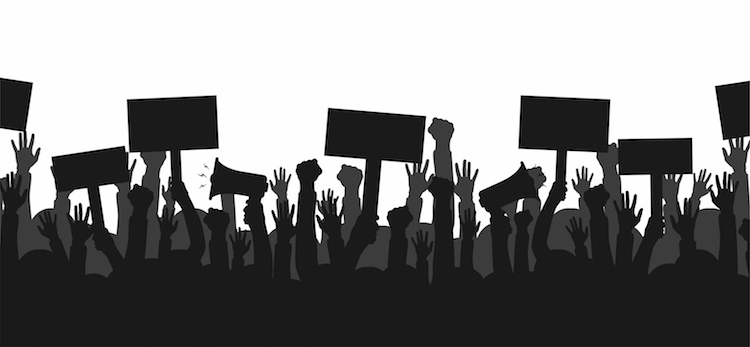How Florida's new anti-riot law could run afoul of the First Amendment

Image from Shutterstock.com.
Legal experts see First Amendment problems with Florida’s new anti-riot bill, signed into law by Florida Gov. Ron DeSantis on Monday.
DeSantis praised the law as “the strongest anti-rioting, pro-law enforcement piece of legislation in the country,” according to the Orlando Sentinel. But experts told the Orlando Sentinel and Law360 that the bill is so overbroad and vague that it criminalizes constitutionally protected speech.
“It’s going to be very dicey figuring out how this law gets applied without starting to really strip peaceful gatherings for the purposes of speech,” said Howard Wasserman, a professor at the Florida International University College of Law, who spoke with Law360.
Kara Gross, the legislative director at the ACLU of Florida, told the Orlando Sentinel that the language of the bill is so overbroad and vague “that it captures anybody who is peacefully protesting at a protest that turns violent through no fault of their own.” The penalty is a third-degree penalty that can result in up to five years in prison, Gross said.
Clay Calvert, a professor at the University of Florida’s Levin College of Law, told Law360 that he is concerned with a provision of the bill that makes it a second-degree misdemeanor for three or more people to meet to commit a breach of the peace.
Law360 and the Miami New Times summarize several provisions of the bill, the Combating Public Disorder Act, including these:
• Unlawful assembly. When three or more people meet to commit a breach of the peace or to do any other unlawful act, it is a second-degree misdemeanor.
• Committing a riot. A person is guilty of the third-degree felony of committing a riot if they willfully participate in a violent public disturbance involving three or more people, acting with a common intent to assist each other in violent or disorderly conduct, resulting in injury to another person, damage to property, or imminent danger of injury.
• Aggravated rioting. A person is guilty of the second-degree felony of aggravated rioting if, in the course of committing a riot, they participate with at least 25 other people; cause great bodily harm to someone not participating in the riot; cause property damage of more than $5,000; display, use, threaten to use or attempt to use a deadly weapon; or endanger the safe movement of a vehicle traveling on a public street or highway.
• Obstructing streets. It is a pedestrian violation for a person to willfully obstruct the normal use of a public street or highway.
• Damaging historic memorials or property. It is a third-degree felony to willfully deface or damage a memorial or historic property when the damage exceeds $200 in value. Offenders must pay the full cost of repair or replacement.
• Intimidation intended to change viewpoint. It is a first-degree misdemeanor for a person, assembled with two or more other people acting with common intent, to use force or threaten to use imminent force to induce another person to maintain or abandon a particular point of view against their will.
• Cyberintimidation. The bill makes it a first-degree misdemeanor to electronically publish another person’s personal information with the intent for a third party to use the information to incite violence, commit a crime or harass the person.



